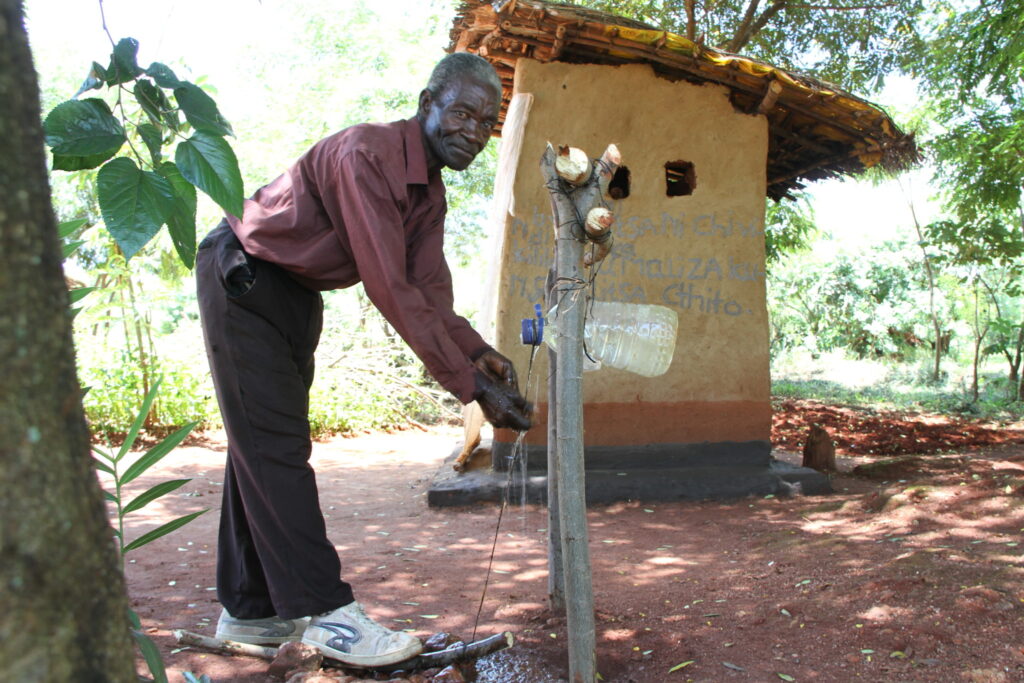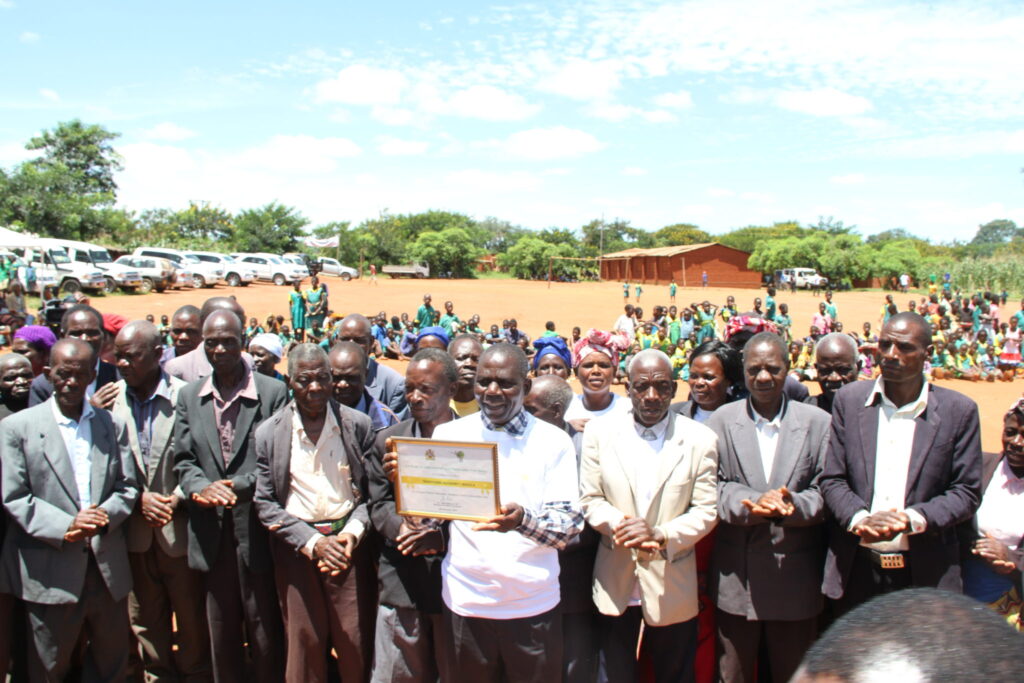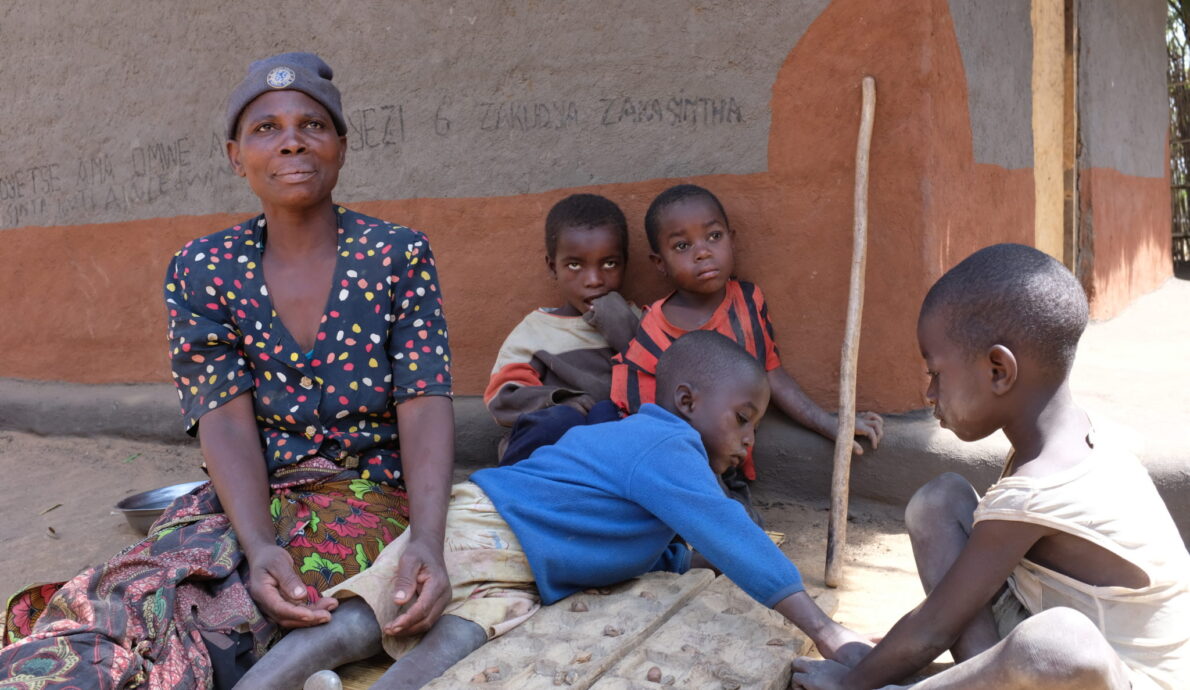In the Traditional Authority of Masula in Lilongwe district – the capital city of Malawi, a small landlocked country in southern Africa – diarrhea and other water-borne diseases like cholera used to be the order of the day. For years, the idea of using latrines never occurred to most members of the local communities. Their fathers and forefathers had lived all their lives without using latrines, which is why they saw nothing inherently flawed with that custom. Few households had access to latrines, and those that had been built were often shared among three to five households. If these shared latrines were not available when somebody needed one, community members would resort to defecating in the nearby bushes. Frequent visits to the hospital and rampant school absenteeism was commonly accepted as a way of life. This way of life posed a great challenge for the public health system. With generous support from the U.S. Agency for International Development (USAID), Counterpart International’s Supporting the Efforts of Partners (STEPS) program partnered with local organizations to try and address these issues.
In 2016, the Mineral and Appropriate Technologies Applicable in Malawi (MATAMA), a STEPS water, sanitation, and hygiene (WASH) partner, initiated a campaign to advocate for improved hygienic practices among households in Masula. These initiatives included both construction and use of improved household latrines and hand washing facilities. This small measure, if implemented properly, would go far in preventing the spread of communicable, water-borne diseases.

Silvester Jason, a Masula community member, demonstrates the use of the locally-made hand washing facility.
In its early stages, the project was met with great resistance from the communities. The idea of having latrines and hand washing facilities for each household was seen as baffling. Silvester Jason, a member of the local community, didn’t believe that the MATAMA WASH project resonated with them. “The whole idea of latrines did not make any sense to us,” said Jason. “Moreover, in our culture, we rarely talk about such issues, hence for one to start talking about these issues openly puzzled us, but with time we came to appreciate the importance of it.”
Despite the initial resistance, MATAMA persisted in sharing critical information with the communities about the positive impacts of hygienic practices. After a series of community-led total sanitation (CLTS) sessions and other direct engagements with the communities and their leaders, community members began to understand the importance of this work and gradually adopted the hygiene and sanitation practices advocated by MATAMA. In an effort to better advocate for a cleaner environment, community leaders decided to go one step further by imposing penalties on anyone who did not adhere to the new practices. Masula leadership coordinated with local chiefs to make it mandatory for every household to have an improved latrine. Failure to do so would result in a payment of at least one goat to the Traditional Authority and two chickens to the local chiefs.
This penalty proved successful in motivating the community members to begin constructing their own latrines. A total of 14,156 traditional latrines have now been constructed in T/A Masula alone. This has increased latrine coverage from 26% at baseline in 2016 to 97% in 2018. In addition, T/A Masula has hand washing facilities coverage of about 85% and latrine drop hole cover at 95%.
As a result of these efforts by MATAMA and the local leadership, in October 2018 Masula was named an open defecation-free (ODF) zone, a government status designating Masula as having a 97% compliance with improved hygienic practices. Building on this success, community leaders again took the improved hygienic practices a step further and requested that community members construct similar latrines in public places such as graveyards.
The communities have seen a lot of benefits since they adopted these hygiene practices. Ellen Maligeni, a member of one of the local communities, said her family is now living healthy as a result. “In the past, we used to visit the clinics regularly because of these water-borne diseases,” said Ellen, who does not remember the last time she visited the hospital to seek medical attention. “The situation was even worse with our children and this was affecting them academically since they would often skip classes. But the situation is now different; we rarely get sick and we have made it a point within ourselves to use the latrines and hand washing facility all the times without fail.”

A representative of T/A Masula and his subject showing off the ODF certificate during the ODF celebration functions.
In celebrating the achievement of ODF status, T/A Masula praised MATAMA, saying, “Let me sincerely thank MATAMA for not giving up on us, indeed we started this project on a wrong foot, but they still pushed until we understood their cause. With confidence, I can challenge you that we will keep up this good work because we have seen the benefits of it.”
In response, MATAMA’s Executive Director, Martin Kansichi, attributed much of the success to the STEPS project for assisting with the development of institutional skills within MATAMA. “STEPS has been very key to the success of this project,” said Kansichi. “We really learned a lot, especially on program implementation. I don’t think the result would have been the same if we didn’t master proper program planning as we were trained by STEPS.”
Masula is only the fourth Traditional Authority out of 19 in Lilongwe to receive an ODF status. This achievement is a great milestone for MATAMA’s WASH project and will help to ensure a brighter, safer, and cleaner future for Malawians in the region.



